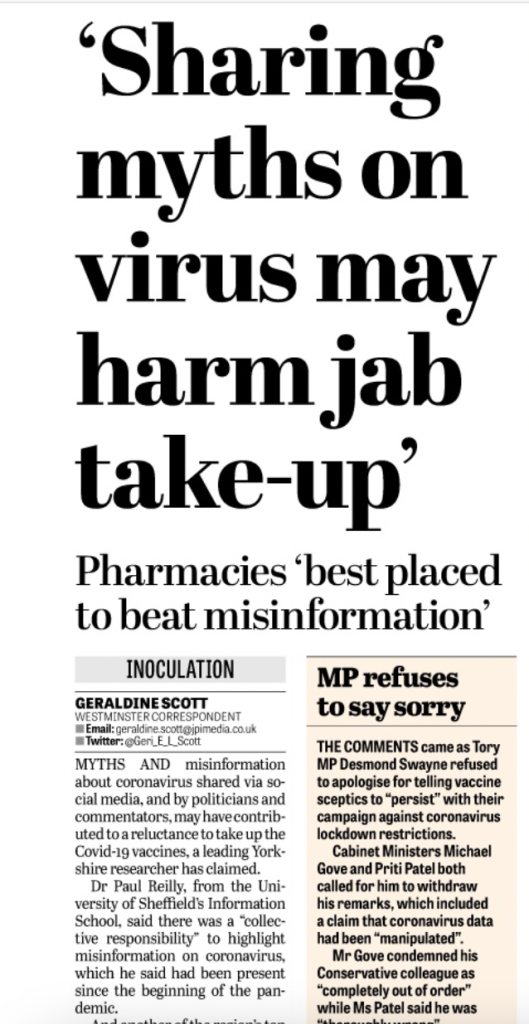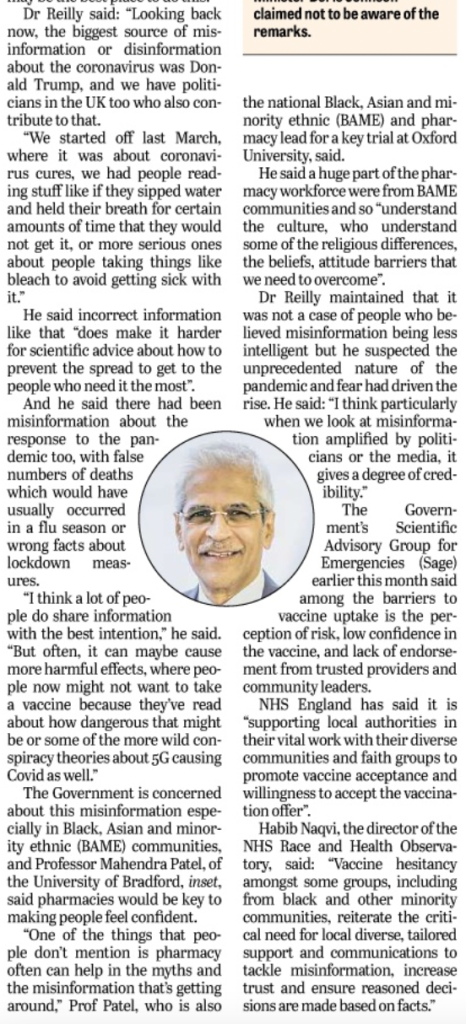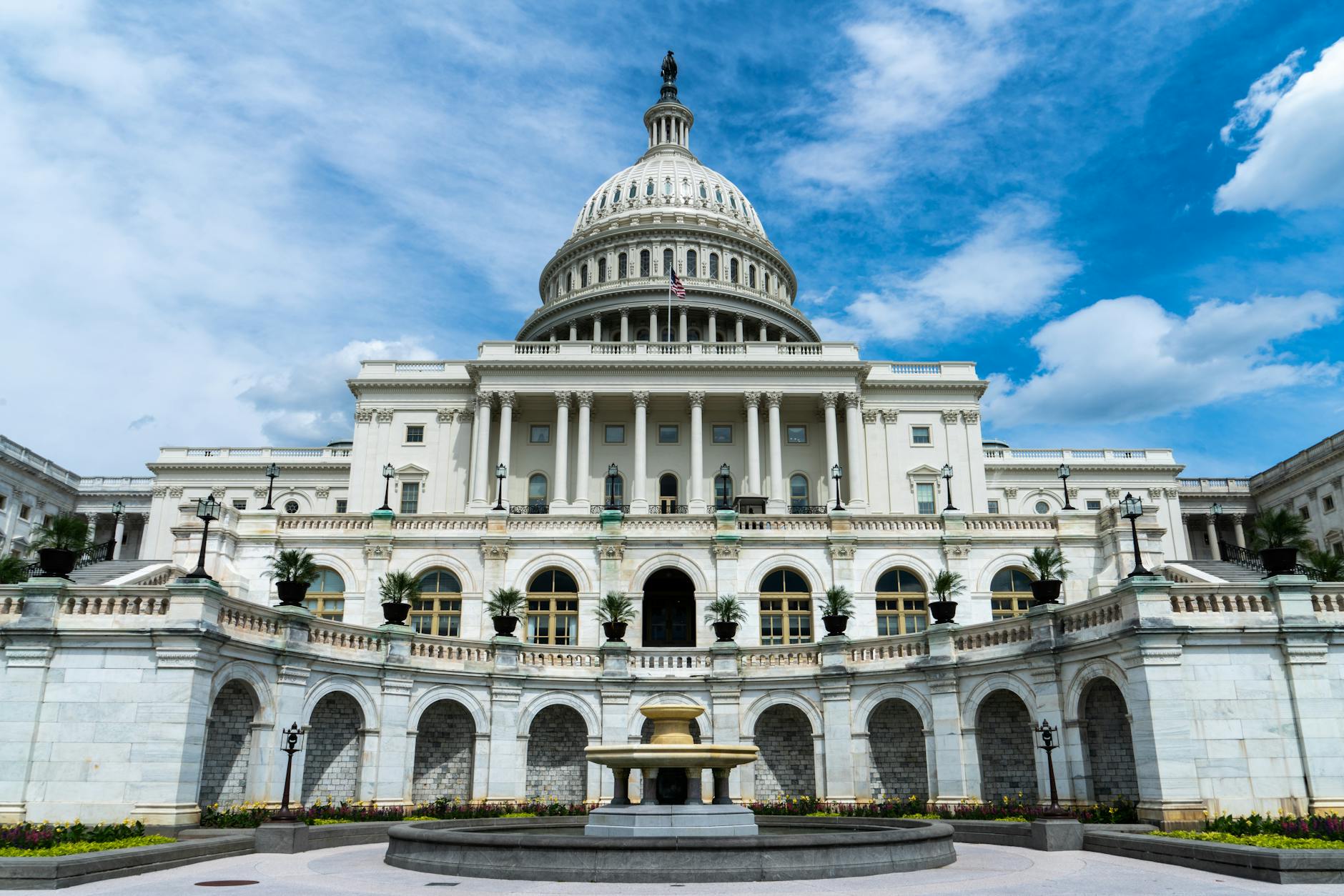
I was interviewed last week for an article that appeared in Saturday’s edition of the Yorkshire Post. As part of their special news report to mark the anniversary of the COVID-19 pandemic, I was asked to comment on the impact of misinformation on vaccine hesitancy, and the reasons why people may believe false information about the virus and its treatment.
The article can be read here. Many thanks to Geri Scott for her time and the interview.





